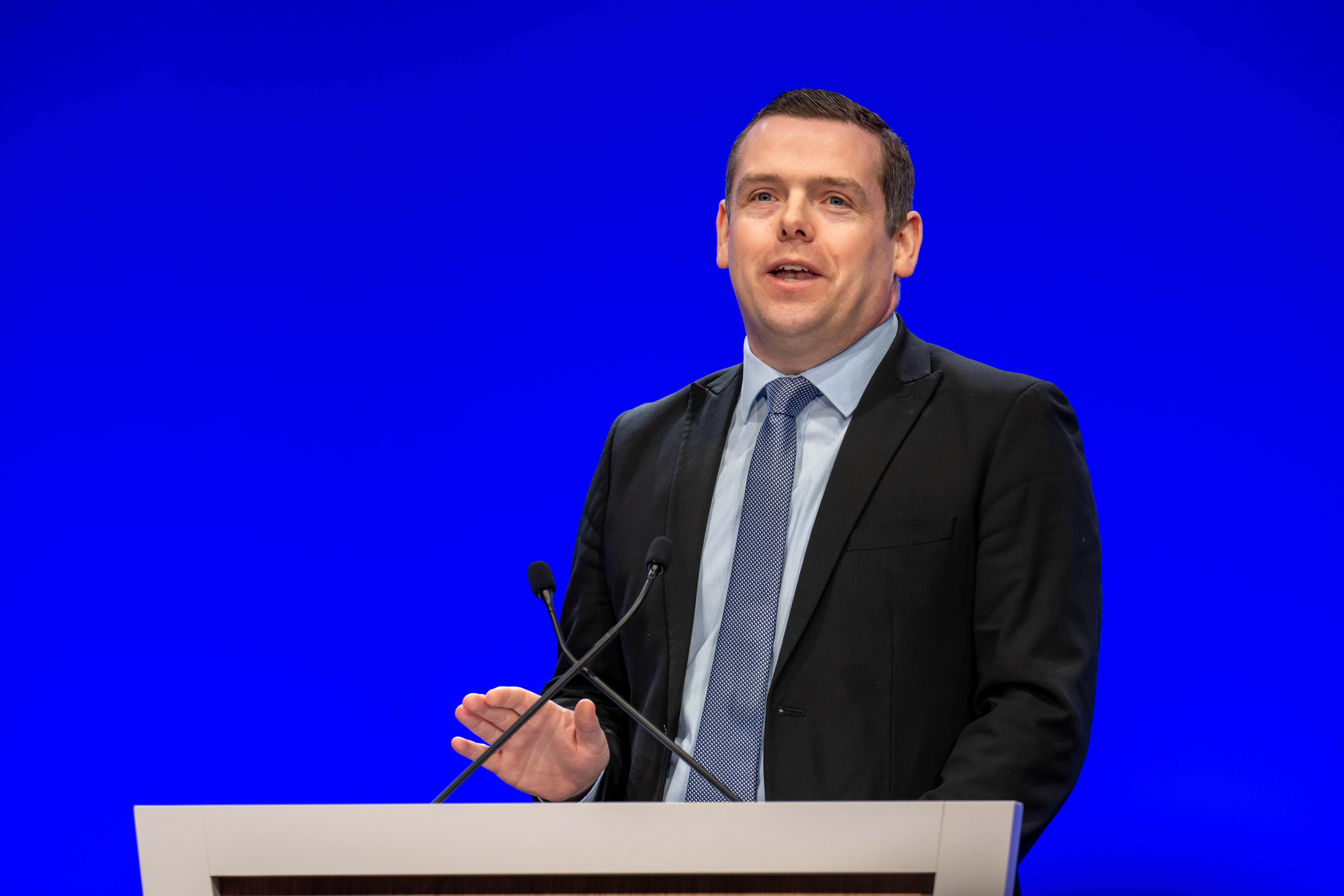Scottish Tory leader rejects claims he threatened to quit over windfall tax plan
Douglas Ross has said he will fight the extension ‘tooth and nail’ and vote against it in the Commons.

Your support helps us to tell the story
From reproductive rights to climate change to Big Tech, The Independent is on the ground when the story is developing. Whether it's investigating the financials of Elon Musk's pro-Trump PAC or producing our latest documentary, 'The A Word', which shines a light on the American women fighting for reproductive rights, we know how important it is to parse out the facts from the messaging.
At such a critical moment in US history, we need reporters on the ground. Your donation allows us to keep sending journalists to speak to both sides of the story.
The Independent is trusted by Americans across the entire political spectrum. And unlike many other quality news outlets, we choose not to lock Americans out of our reporting and analysis with paywalls. We believe quality journalism should be available to everyone, paid for by those who can afford it.
Your support makes all the difference.Douglas Ross has rejected claims he was on the verge of resigning as Scottish Conservative leader in a row over the windfall tax extension.
The Telegraph newspaper reported Mr Ross had heated conversations with Prime Minister Rishi Sunak and Chancellor Jeremy Hunt over the Budget decision to increase the levy by a further 12 months until 2029.
Mr Ross has spoken out against the move, pledging to fight “tooth and nail” to have it overturned and stating he will vote against it when it comes before the House of Commons.
Following First Minister’s Questions at Holyrood on Thursday, Mr Ross was asked by journalists if he threatened to quit.
He replied: “No. We had had strong and robust discussions but ultimately the best way I can stop this is by being in the House of Commons and voting against this legislation.”
Mr Ross was also asked if the extension puts his election campaign in a difficult position, with fears it could ruin the party’s chances of retaining key seats in the north east of Scotland.
He said: “I think the most important thing is providing that security and certainty for the oil and gas sector, and that’s why I went in to fight as hard as I possibly could on this issue.
“The Chancellor had a difficult Budget to set and I think everyone has accepted there was a balance to be struck.
“I will never shy away from publicly saying it was the wrong choice by the Chancellor, and I still have an opportunity to prevent it from happening when this Bill comes back to Parliament.”
During a visit to Edinburgh on Thursday afternoon, Scottish Secretary Alister Jack said the Scottish Tory leader was “never resigning”, but he added he understands why Mr Ross disagrees with the extension.
Mr Ross was not the only high-profile Scottish Tory to condemn the move, with UK Government energy minister Andrew Bowie – the MP for West Aberdeenshire and Kincardine – branding the decision “deeply disappointing”.
The Prime Minister has since responded to Mr Bowie’s comments amid claims his position in the Government is now untenable.
A spokesman for Mr Sunak said he retains full confidence in his energy minister, adding: “He obviously has since clarified his position, he’s spoken to the Chancellor about his views and he’s been clear that he supports the Budget.”
Asked whether the PM retains confidence in him, the spokesman added: “Yes.”
Mr Jack also weighed in, arguing: “I don’t think he will vote against the windfall tax extension. If you are a Government minister then you vote with the Government.”
It comes as the Chancellor conceded his decision to extend the windfall tax is “difficult” for his party’s north east representatives.
He blamed the war in Ukraine for instability in the oil and gas sector, telling BBC Radio Scotland’s Good Morning Scotland programme: “Nothing has been stable in the world since Vladimir Putin decided to invade Ukraine. That is the fundamental cause of instability.”
He added that as high oil and gas prices had “lasted longer than was anticipated at the start of the Ukraine war”, energy firms are making “additional profits they weren’t expecting to make”.
The energy profits levy charges oil and gas companies an extra 35% tax on the money they make in the UK, with its extension expected to raise another £1.5 billion for the Treasury.
Mr Hunt said: “I think it is a fair contribution given the scale of the unexpected profits they have had.”
Asked directly if he had thrown Conservative MPs in the north-east of Scotland “under a bus”, the Chancellor said: “No,” but added: “I appreciate it was a difficult decision for them.”
He said the UK Government still “strongly supports the oil and gas industry”, and added: “I also had to be fair looking at the public finances, looking at the fact that I have spent, taxpayers have spent, £94 billion in cost-of-living support, helping pay around half people’s electricity bills over the last winter, and reflecting the fact that because high oil and gas prices have lasted longer than was anticipated at the start of the Ukraine war, they are making additional profits they weren’t expecting to make.”
He insisted it is “the right thing for all the country”.